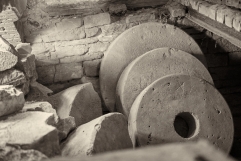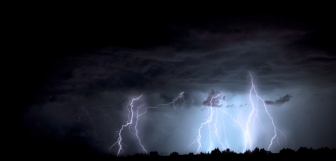
I'm sorry to say this, and it pains me to tell you – but this current situation is all your fault.
What situation do I have in mind? Well, it could be one of a number, really – Brexit, the state of American politics, or perhaps that difficult situation of personal conflict you are facing. No, no – hear me out. Allow me to explain.
If you voted to leave the European Union, the current mess in British politics is plainly the fault of you Brexiteers. You had no plan. You ignored the warnings. You were too stupid to understand the facts.
If you voted to remain in the European Union, then the instability is obviously – clearly – the result of your Remain camp. You refuse to accept democracy. You demonise those who voted the other way. You talk down the economy.
If you happen to be reading this in the USA, then it's your fault as well. What is? The controversy over guns, of course! If you're in favour of more gun control, how can you be so stupid as to fail to grasp that guns don't fire themselves? It's people who pull the trigger! Sensible people need guns to protect themselves; there is a constitutional right to bear arms; it's part of the American way of life.
If you're against gun control, how insane is that then? You're just in the pocket of the NRA (National Rifle Association) and blinded by their well-funded rhetoric. How can you not see that America has a far higher gun crime rate than other countries with more controls?
Back to the UK. That mess in the Labour Party? The fault of the Blairites. Or the Corbynistas. Whichever side you sympathise with, it's plainly the other lot's fault. The divisions in the Conservative Party? Either it's that pro-Remain Mr Cameron's fault for taking a gamble and not thinking things through. Or it's the responsibility of Boris Johnson and Michael Gove, who weren't really expecting to win anyway.
I hope you feel thoroughly guilty by this point because you should. I blame you. Personally. And I just hope you can see that I am in the right, as I "plainly" am. Always.
At this point, let us all take a deep breath and pause. Because I think at this stage the point is clear. Human beings – all of us, including me – have a wonderful capacity to blame someone else in pretty much any situation. We even live now in what has been called a "blame culture". The first question earlier this morning from a BBC radio interviewer to an MP about an industrial dispute on the railways was: "Who is to blame?"
It's striking that, according to the Bible, we have always been like this. In the Genesis story of Adam and Eve, Adam blames Eve for leading him astray and Eve blames the serpent. And thus it has continued. We can always find a scapegoat.
When I was on my post-graduate journalism course the students were once instructed to hold a debating exercise on whether media mogul Rupert Murdoch had been a positive or negative influence on newspapers. I can't even remember which side I was asked to speak in favour of, but whichever it was, it was the side I didn't really believe in. I argued the best I could, and, to my surprise (indeed consternation) found that by the end of the discussion, I had won a considerable number of colleagues over. Moreover, I had almost managed to persuade myself!
It is no bad thing, once in a while, to put ourselves in the shoes of the "other" – whoever that "other" might be; to try and see things from their point of view, even while retaining and speaking with passion for our own convictions.
For "all have sinned and fall short of the glory of God", as Paul puts it. When it comes to blame, we all share some responsibility, because we all contribute to the mess the world is in. And that's why we need the full measure of grace and truth that only Jesus offers.
He is the one who voluntarily became the real, ultimate "scapegoat" for us (fulfilling the picture set out in Leviticus 16:10), taking all the blame, the punishment, the consequences, for our foolishness upon himself.
And Jesus put himself, literally, in our shoes. That's the point of the incarnation. And having done so, he then walked to his crucifixion. His bloodied footprints remind us that when it comes to blame, we all share our responsibility in this sinful, fallen world. And those footprints bring us to the place – the cross – where our accusing voices of blame are silenced, as we stand and look at Him.
David Baker is a former daily newspaper journalist now working as an Anglican minister in Sussex, England.

















